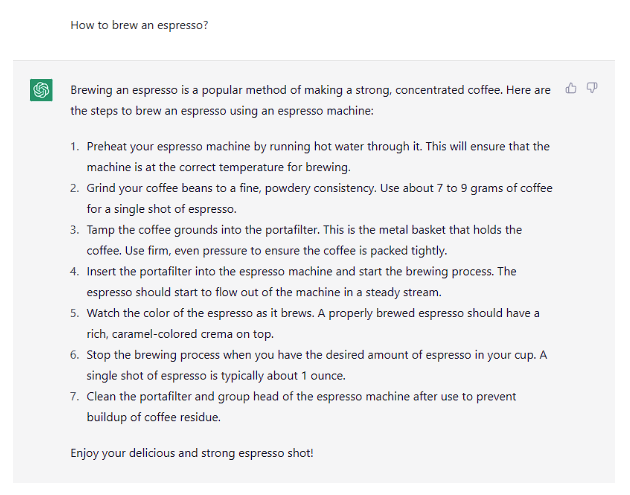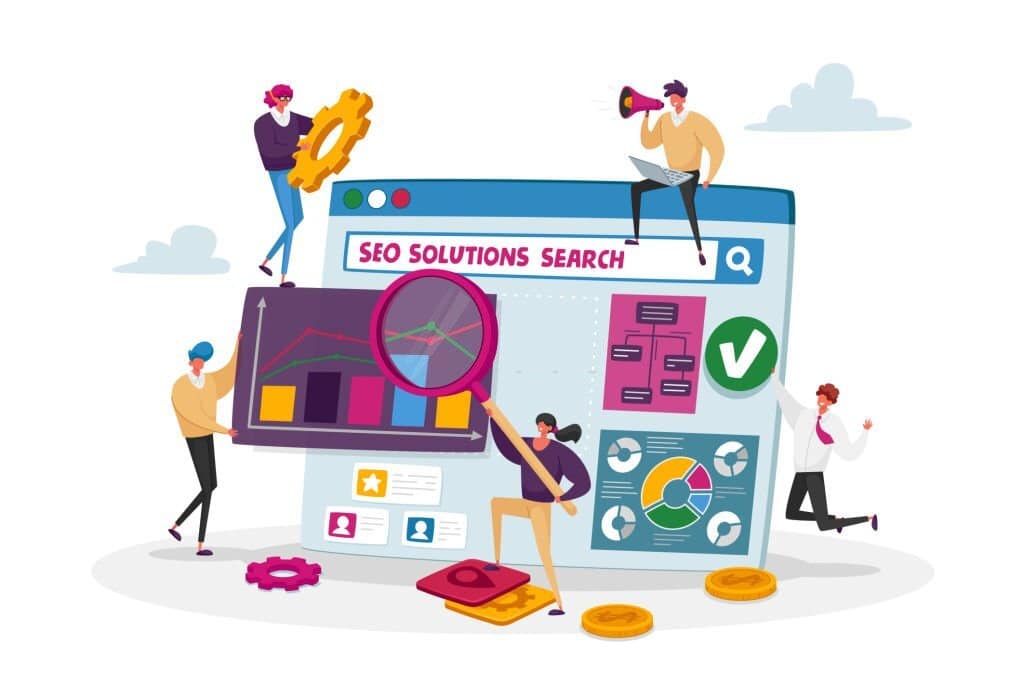Search engines have become the primary source of information for almost everything we need, from looking for products online to finding different store locations. As artificial intelligence (AI) becomes more prominent, it is changing how businesses compete on search results pages. AI SEO has taken over the SEO strategies of content writers, digital marketers, and business owners who have realised that adopting AI is necessary to stay ahead of the competition.
This technology is still emerging, and now is the time for businesses to incorporate it into their growth strategies or get left behind. Here’s everything you need to know about AI content and what it means for your SEO strategy.
AI Technology in a Nutshell
AI refers to emerging technologies that aim to perform cognitive and technical tasks faster and better than humans. This technology includes machine learning (ML), natural language processing (NLP), deep learning, and computer vision, among others. Examples of AI technology include self-driving cars, product detection sensors, smart cameras, smartphone assistants, and chatbots.
Businesses that have adopted AI have seen positive results in their campaigns. According to an AI adoption study, about 21.33% of businesses reported a 6–10% revenue increase after implementing artificial intelligence.
Will AI Replace SEO?
With the positive impact AI has on marketing and all other activities, many people wonder whether it will take over SEO. However, on a large scale, AI will not replace SEO. The latest AI breakthroughs show that the technology won’t overshadow the human touch.
What is OpenAI’s ChatGPT?
ChatGPT is a full-blown AI chatbot system developed and released by OpenAI in November 2022 to test the lengths of a complex and powerful AI system. It is a generative pre-trained transformer (GPT) that combines machine learning and natural language processing algorithms to provide useful answers to countless questions. When you input a query, ChatGPT analyses the text using several NLP techniques (tokenisation, parsing, part-of-speech, etc.). The AI then generates a response using its neural network, which is trained on massive amounts of text data through machine learning. ChatGPT can provide accurate information in areas where the AI tool has adequate training data.
How Does AI Content Impact SEO?
AI has been present in search engines for much longer than most people realize. Google’s RankBrain and BERT are deep-learning algorithms that use machine learning and natural language processing, similar to the tools used in ChatGPT. These algorithms are designed to improve Google’s understanding of search queries and provide a cleaner and more accurate search results page.
AI can be used not only for content development but also for data analytics and content gap research, making SEO-related tasks more efficient. AI and SEO are a perfect match, but that does not mean AI content will become better at ranking than human-written content.
Is this the end of human-written content?
Artificial Intelligence (AI) is becoming increasingly advanced, to the point where it can produce content that is comparable to that written by humans. However, it is important to consider both the advantages and limitations of AI-generated content.
One of the main advantages of AI-generated content is its cost-effectiveness. It is often quicker and cheaper to use AI to generate content than it is to rely solely on human writers. This is particularly beneficial for businesses looking to produce a large volume of content.
Another advantage is that AI technology is constantly improving. Machine learning algorithms can process complex language and adapt to new problems over time, meaning that AI-generated content is becoming increasingly human-like and engaging.
However, it is important to remember that AI content generators have their limitations. While they may seem sophisticated, they are ultimately just machines that are limited by their programming. For example, ChatGPT and similar AI tools can only use information that is available online and cannot create truly original content or understand user intent.
Another limitation of AI-generated content is that it cannot guarantee quality. AI tends to rely heavily on algorithms and data analytics, which can result in content that is keyword-dense and lacks a human touch. There is also a risk of inconsistent facts, which can harm your SEO efforts and damage your reputation.
Despite these limitations, AI-generated content can still be a useful tool for businesses looking to rank higher on Google. However, it should be used in conjunction with human-written content and carefully fact-checked to ensure accuracy and quality.
Does AI Content Rank on Google?
The question at hand is whether AI-generated content can rank on Google and whether it can be utilised to enhance your content marketing strategy. The simple answer is yes, but the key is to use AI to improve your existing content rather than relying solely on AI-generated content. Remember that quality trumps quantity, so it’s better to have one well-written piece of content that effectively engages with your audience and drives traffic than several pieces of AI-generated content. Ultimately, it’s important to keep in mind that just because something can be done, it doesn’t necessarily mean it should be done.
What Does Google Think About AI Content?
Google has indicated that it is acceptable to use partially AI-generated content for SEO purposes, as long as the content adheres to its search guidelines and provides readers with valuable and original information. However, Google is very clear on its stance against the use of automation, including AI, for search manipulation.
According to Google’s blog, using automation systems to generate content that manipulates search rankings is a violation of its spam policies. Google has a zero-tolerance policy towards plagiarism and low-quality content. While publishing mass-produced AI-written content may not always lead to a penalty, it is unlikely to rank well.
To effectively engage readers and address search intent, it is important to use AI tools alongside human editors who can polish, fact-check, and improve the content. Google has been fighting against black hat tactics and webspam for many years and continues to enhance its anti-spam tools, such as SpamBrain.
Can Google detect AI content?
It is believed that Google has the ability to detect content that has been generated by artificial intelligence (AI) systems. As AI content creation tools become more advanced and produce more natural-sounding content, Google has developed techniques to identify and classify this type of content using natural language processing (NLP).
Google’s algorithms analyse the syntax and patterns commonly found in computer-generated content to identify any inconsistencies or trends. This helps to ensure that search results provide a high-quality user experience and meet the search intent of users.
It is expected that Google will continue to update its algorithms to penalise websites that use AI-generated content to manipulate search rankings. This is in order to maintain the integrity of its search results and provide users with the most relevant and trustworthy information possible.
How We Use AI To Power our SEO Campaigns
Using AI as an assistant tool can provide numerous benefits to help enhance SEO efforts. Here are some proven ways to complement AI in your SEO strategy, from planning to execution:
AI for Topic and Keyword Research
AI chatbots can act as powerful keyword research and analysis tools for collecting user insights and input data. They can provide reliable insights about the keywords people search for in your niche and how they appear in Google’s SERPs.
You can use AI SEO information to improve your content and categorise related keywords. Chatbots are also helpful for keyword research and analysis, which is essential for any successful SEO campaign.
AI for Optimised User Intent
Using AI for SEO can help you compete in the rankings by streamlining high-quality content targeted towards user intent. With AI content and SEO, businesses and specialists can create content tailored to user intent without spending excessive time optimising each piece.
AI for Technical SEO
Artificial intelligence can strengthen your SEO’s technical backend by automating tedious data entry and encoding tasks such as technical auditing, creating JSON-LD schema, internal linking, writing robot crawl directives and meta tags, and programmatic projects to automate specific SEO processes. There’s more to AI than just writing content. Its technical advantage can save you time and resources, allowing you to focus on other business aspects beneficial to your growth.
Overall, AI is changing the way SEO is done and making it more effective for businesses to rank higher in search results. As AI technology continues to evolve, it is likely that we will see even more advancements in the field of SEO in the coming years. A well-executed SEO campaign driven by AI can grow your business unprecedentedly. Speak with our SEO Sydney specialists today, and let’s chat about how we can help grow your business.









